Noise Awareness Training Online Course
Quantity: 1
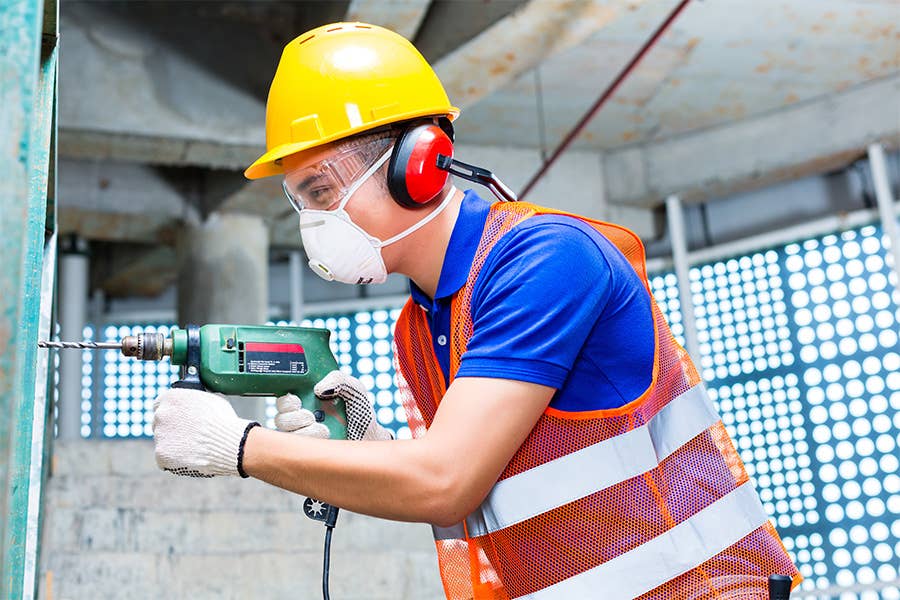
Duration 1-2 hours
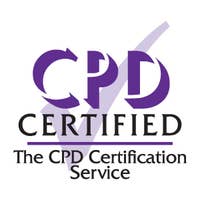
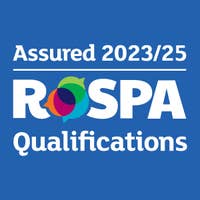

100% online training
Start when you like
Learn on any device (desktop, mobile or tablet)
Instant assessment and result
1 learner per course
Train teams of all sizes
Bulk discounts starting at 10% off 10 courses
Pay by invoice with 30 day payment terms available (5+ courses)
Includes a 10% discount for 10+ courses
It's essential that noise levels and people’s exposure to noise at work are kept to an absolute minimum to prevent permanent damage to workers' hearing. This Noise Awareness course is designed to familiarise you with the risks posed by noise and helps employers and employees recognise the dangers and understand how to keep noise emissions as low as they possibly can.
The course provides you with information on your responsibilities under relevant noise legislation and will teach you how to carry out a risk assessment, assess noise control measures, and implement further changes to prevent harm from coming to employees.
100% online training
Access anywhere
Same day digital certificate
Printed certificate posted next working day
Full audio voiceover
Assessment retakes at no extra cost
Written in accordance with the Control of Noise at Work Regulations 2005
Developed by health and safety professionals
Accredited by CPD and assured by RoSPA Qualifications
Bulk discount for orders of 10+ courses
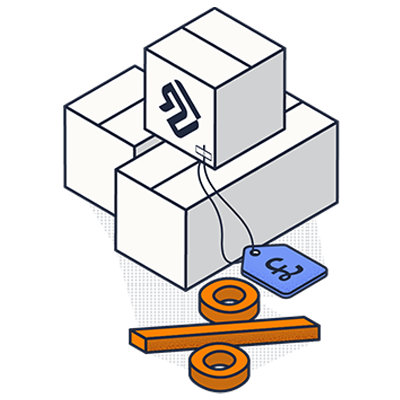
Save on our courses when you buy more training upfront. Lock in a better price now and access the training whenever you need to. You can mix and match any of our courses too and get the discount off your whole order.
10+ courses = 10% off
50+ courses = 20% off
100+ courses = 30% off
500+ courses = 40% off
By the end of this course, you will understand:
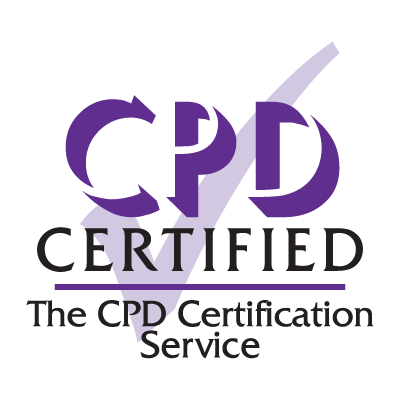
Accredited by CPD
All of our courses are accredited by the CPD Certification Service as conforming to universally accepted Continuing Professional Development (CPD) guidelines.
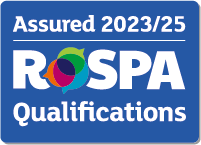
Assured by RoSPA Qualifications
This course is also assured by the Royal Society for the Prevention of Accidents through their RoSPA Qualifications Assurance System, as providing up-to-date, quality and content-approved training.
Recommended renewal:
1 year
What does this mean? This certificate does not have an expiry date, however, based on industry best practice guidelines there is a recommended renewal period.
Our in-house Learning Designers develop all of our courses to give you and your learners the most engaging training possible.
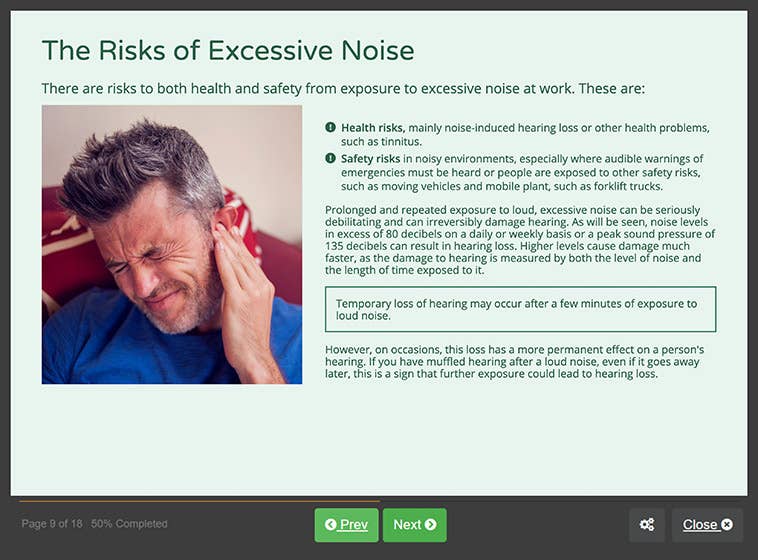
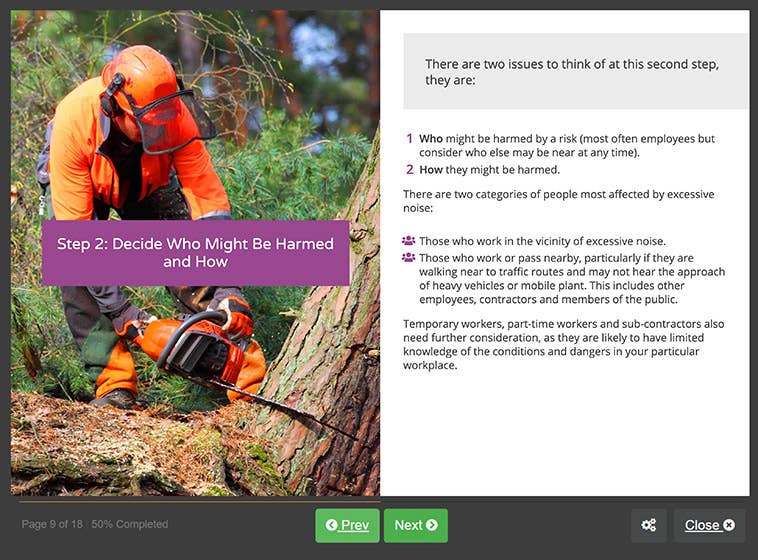
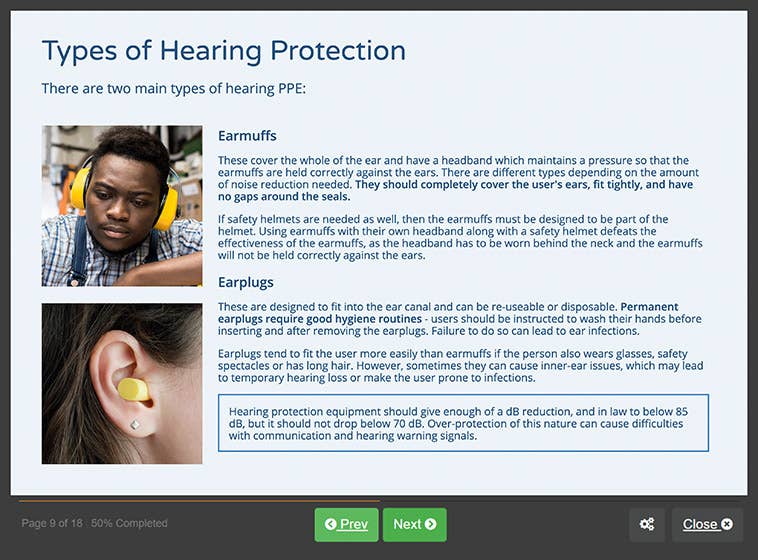
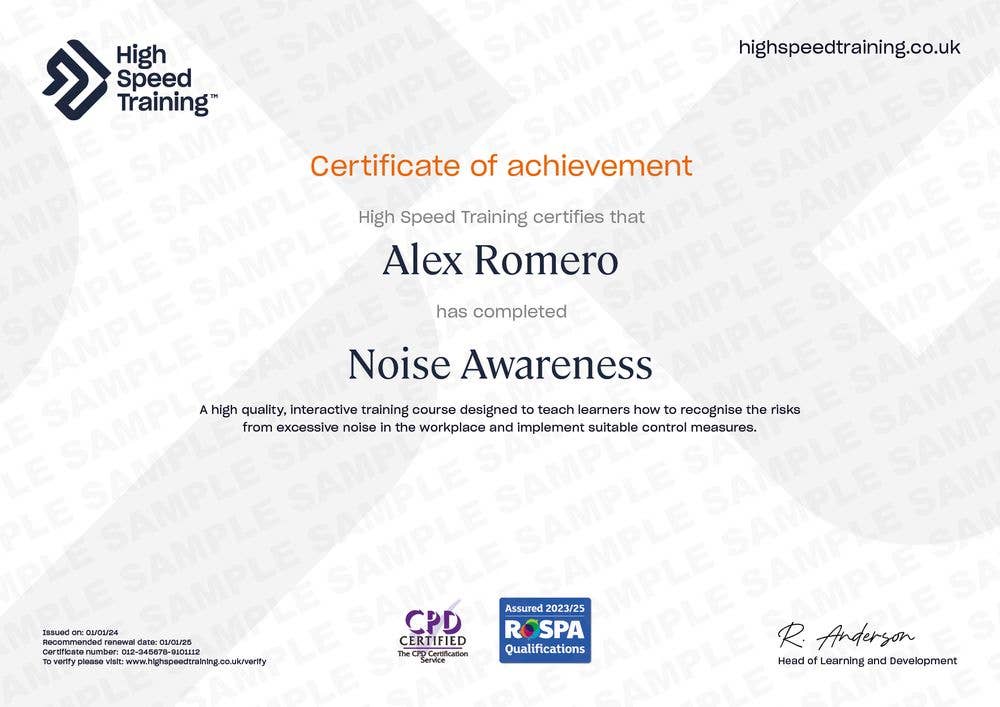




Examples of noise in the workplace, risks of excessive noise, statistics on noise-induced hearing loss, why is controlling noise at work important?, and estimating and measuring exposure to noise.
The Control of Noise at Work Regulations 2005, exposure action values, lower and upper exposure action values, hearing protection, the Health and Safety at Work, etc. Act 1974, other legal duties, employee responsibilities, instruction manuals, and actions to take if noise is affecting employees' hearing.
What is a risk assessment?, key definitions, who should carry out the risk assessment?, identify the hazards, decide who might be harmed and how, consider how hazards may occur, measurement of noise, sound measuring equipment, evaluating existing control measures, the hierarchy of control, record your findings, and review and update.
Advantages of noise control over hearing protection, purchasing and hiring policies, standards for new machinery, the hierarchy of control, maintenance and use of machinery and equipment, job rotation, information, instruction and training, hearing protection and hearing protection zones, when to use hearing protectors, general requirements for personal protective equipment (PPE), types of hearing protection, and health surveillance.
The online assessment is taken on completion of the training material. You will be asked 15 multiple choice questions with a pass mark of 80%. The answers are marked automatically so that you’ll instantly know whether you passed. If you don't pass don't worry! You can take the test as many times as you need with no extra charge.
This course is suitable for anyone who works in an industry that involves being exposed to high levels of noise. It will enable both employers and employees to examine their workplace and identify where noise may pose a risk to people’s hearing and general safety and take the necessary measures to minimise exposure and noise emissions.
It will enable both to meet their legal requirements, fulfil their responsibilities, and prevent noise levels from reaching unacceptable levels that could breach legal limits and compromise people’s wellbeing.

In partnership with
Neil Murray
Health and Safety Consultant
Neil Murray is a vastly experienced and highly qualified health and safety professional who has held roles such as Senior Health and Safety Executive inspector, and Principal Inspector for Channel Tunnel construction. He has also held senior roles in an international infrastructure business, a major UK water utility company and a major construction group and provided management consultancy to numerous companies across a wide range of industries.
Neil has a wide expertise in many sectors, including construction, civil engineering, manufacturing engineering, water and waste utilities, education, heritage sites, public safety, rail construction and operation, transport, marine, waste management, engineering design and industrial and facilities management services.
Neil is a QSA auditor for RoSPA and also an author of published guidance on health and safety in the construction of the Channel Tunnel, work at height, major project management, and online training courses.
Yes, our Noise Awareness course can act as evidence of industry-related training for accreditation applications, such as CHAS. It covers the requirements of the Control of Noise at Work Regulations 2005, which will help you understand how to fulfil the legal duties they set out. Knowledge of these topics form part of the training requirements set out by accreditation assessment bodies, so you must be able to demonstrate evidence of compliance in order for your application to be successful. Our course will contribute to the evidence you must provide during your application, to show that you have received the relevant training.
Please note that it will be down to each individual accreditation body to decide if our courses are sufficient for the training requirements of your specific business. This evidence only forms one part of your overall application process. It is up to you to prove you are fulfilling your legal duties and to supply sufficient evidence for everything the accrediting body requires in order for your application to be successful.